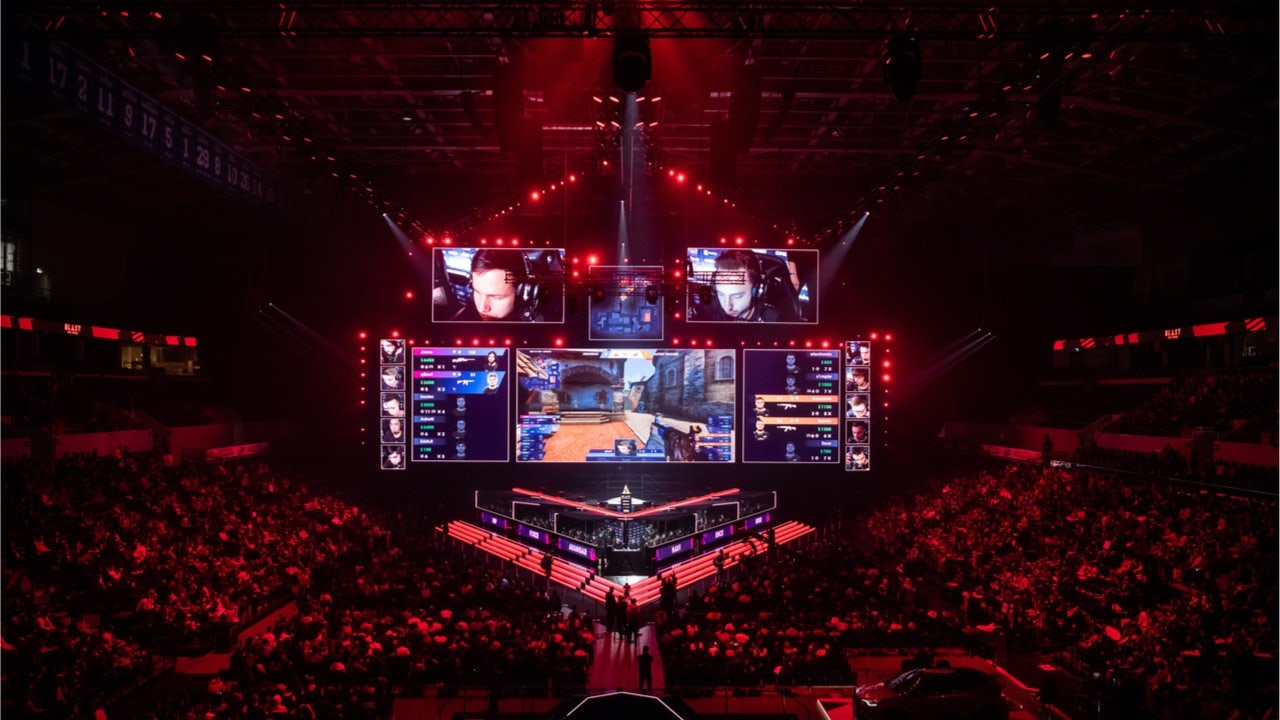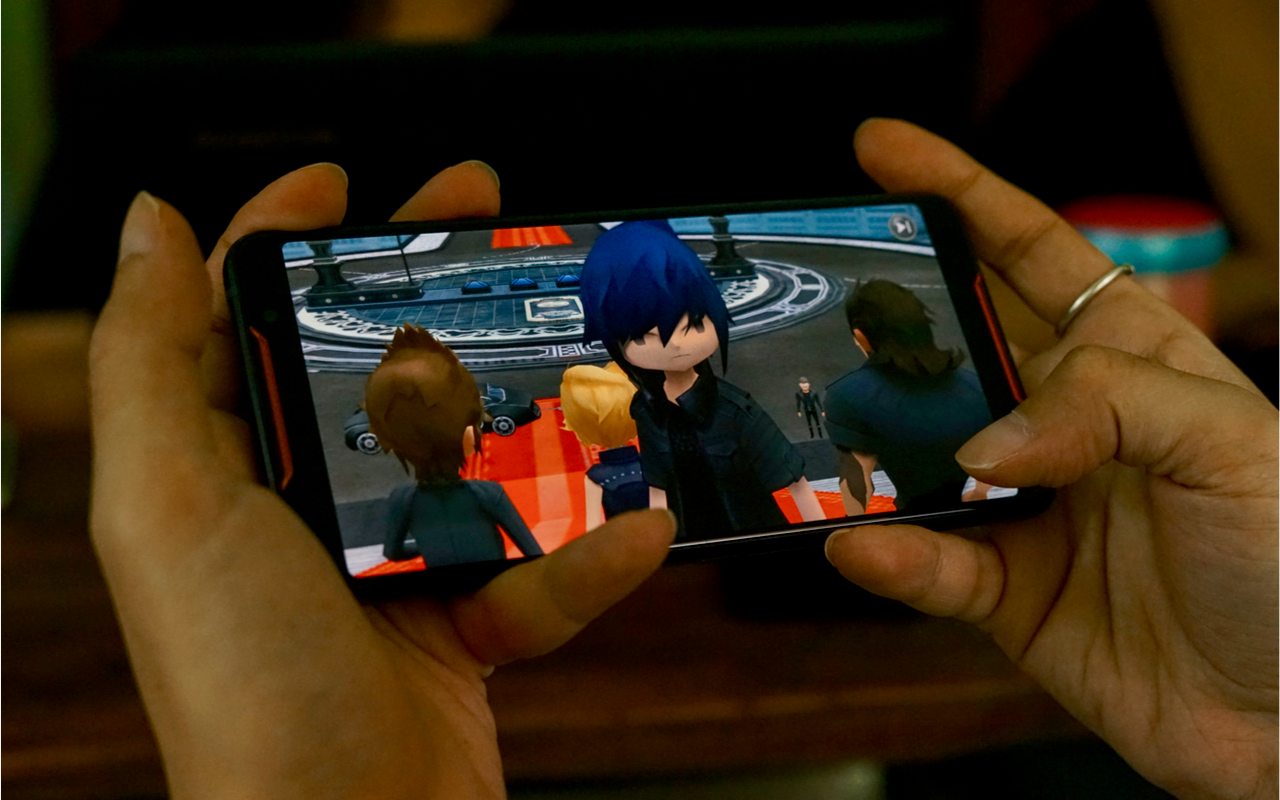This year, Louis Vuitton is going to design the World Championship trophy case for the world-famous multiplayer online battle arena video game League of Legends. The brand is also offering a capsule skin, which are the clothes the virtual players wear. Despite some mixed reactions, netizens are generally thrilled by the surprising collaboration between the luxury giant and what is considered the most popular online game in China this year, according to Baidu Search Ranking.
Louis Vuitton’s collaboration with League of Legends is not the first time the French luxury house has attempted to grab online gamers’ attention. Back in 2015, the brand tapped this market by using the virtual character “Lightning” from the video game series Final Fantasy as the model for its Spring 2016 campaign. It isn’t even the first time a luxury fashion partner has teamed up with the gaming industry, yet the weight of the Louis Vuitton brand in luxury circles and the legitimacy of League of Legends in today’s gaming market proves that collaborations between the two industries will likely be trending in the future.
China has grown an online gaming population of over 484 million players — that’s a third of the entire Chinese population with women representing over 58 percent of those players. That begs the question: Should luxury brands target online gamers in China? Both in the real world and the virtual world? For brands considering this opportunity, here are a few considerations that must be made before entering China’s online gaming scene:
In China, online gaming, especially eSports, overlaps with real-world entertainment#
Perhaps the biggest characteristic that sets apart the Chinese online gaming scene from the activity in other parts of the world is its large overlap with the entertainment and celebrity industries. In China, well-known players are no different from Chinese idols or singers, where they have equal fan bases and have similar media and entertainment resources. “Players are becoming real-life influencers and brands potentially have various ways to tap into the monetization of the super IPs from the online world,” says Laure de Carayon, founder and CEO of China Connect.
For example, Yan Junze (also known as “LetMe”) from the Royal Never Give Up League of Legends team, who helped the Chinese national team win their second gold medal in the esports section of the Jakarta Asian Games in 2018, currently has over 1.3M followers on Weibo. His retirement announcement this past May drew over 5 million people watching live and appeared on Weibo’s hot search twice. He also revealed that he would become an announcer for a video game streamer on Huya,(“虎牙直播”), the top live-streaming gaming platform in China, and his Bilibili, a top livestreaming platform in China, account received over 100k followers in the 3 days after he registered. This is no different than in countries like France where esports players have become journalists for real-life events, according to de Carayon.
The big payoff from Chinese online gaming for luxury brands is its huge and still growing group of young, female Chinese players.
But the most obvious sign of Yan Junze’s ability as an esports player to drive entertainment and fashion collaborations with his fan support is the successful launch of his streetwear brand this September on the YOHO! fashion sales platform. His nickname, “the Karry Wang of esports” (Wang is the leader of the TFBOYS, a hot Chinese boy band), says a lot about his star power in China, which is, in fact, similar to that of the real Karry Wang.
Gaming-entertainment collaborations also come from the other side in China where celebrity singers and actors actively position themselves in the esports world to gain more attention. For example, at League of Legends’ sixth-anniversary event back in 2016, famous Chinese singers Jay Chou and Kris Wu sat together with professional players Benwei Lu and PDD (Liu Mou) and played LOL on stage together.
With the help of downstream services like live-streaming platforms and the Chinese government’s advocacy for esports policies, such as e-sports village recently founded in 2019 by Tencent with the support of local governmental entities in Yunnan province, online gaming in China has largely evolved into a normalized, day-to-day entertainment practice that many people engage with. Playing online games and watching live eSports matches are simply alternative ways of killing time.
The growing number of female players offers a huge commercial opportunity#
The big payoff from Chinese online gaming for luxury brands is its huge and still growing group of young, female Chinese players. That’s because their age group also represents one of the biggest spenders on luxury goods in China. A 2017 research report from Tencent Institute on Games shows that the popular multiplayer online battle arena game Honor of Kings (“王者荣耀”) had collected over 100 million female users, which represented 54 percent of the total players of the game while more than 52 percent of users were below the age of 24, according to TalkingData. The same research also showed that female players were sacrificing their portion of TV series’ (44.1 percent) and variety shows (28.3 percent) time to play the game. “The blurring/merging of real-life and virtual experience is coming, and brands are entering online gaming to leverage the time people spend on mobile, especially given the percentage of Gen Zers and millennials presented in the online gaming world that all brands are betting on,” says Laure. Notably, female players’ intentions for buying game-related products is as high as 46 percent, and female players’ top intention to purchase within the game is for aesthetic purposes, unlike male players who focus more on functions.
This shift in time from traditional entertainment channels like shows and movies to online gaming along with spending money within the game and on related products opens up a huge space for companies to offer branded product collaborations and placements within the game. Online gaming is gradually taking up equal importance as a marketing channel as the traditional channels.
The virtual world and luxury are both about fantasy and story-telling#
Online gaming is a virtual world, and people go there to experience things they can’t get in real life. The “virtual world is selling fantasy,” states Laure, “which Chinese women are obsessed with. It could be in any form online, from beauty to style with a lot of subjectivity behind.” Indeed, the virtual world is a constructed world where one can become someone else. Similar to the way fashion constructs a fantasy world around beauty and celebrity. And these days, many aspects of modern life have been transferred online in China. One online game can mimic various real-life experiences to fulfill the needs of an individual, from online dating to virtual pets.
Therefore, luxury brands can imagine new ways to allow consumers to experience their brand — both in the virtual world and the real world. That means brands can bring their experience into the game’s virtual world but also bring that world into stores. “When all the audiences from the virtual world are readily presented in front of you, all you need is to tell them the right message to successfully unlock their commercial potential,” adds Laure. “Storytelling is at the heart of it.”
For example, M.A.C’s lipstick collections, in collaboration with King of Glory 王者荣耀, sold out quickly after launching. The secret was finding the right emotional connection for female players within the game, with the lipstick allowing consumers to own a small takeaway from the fantasy presented by the game’s virtual characters.
The recent Louis Vuitton collaboration with League of Legends is also anchoring the brand’s image of legitimacy and heritage among the esports world audience. LV’s capsule collection skins for League of Legends allows users to dive into a brand’s story in a virtual scenario. This experience, which breaks the assumed boundary between real and imaginary worlds, is new to most Chinese consumers and has been received with a mixture of surprise, curiosity, and welcomeness. Surely it’s a trend that’s only going to keep growing.

